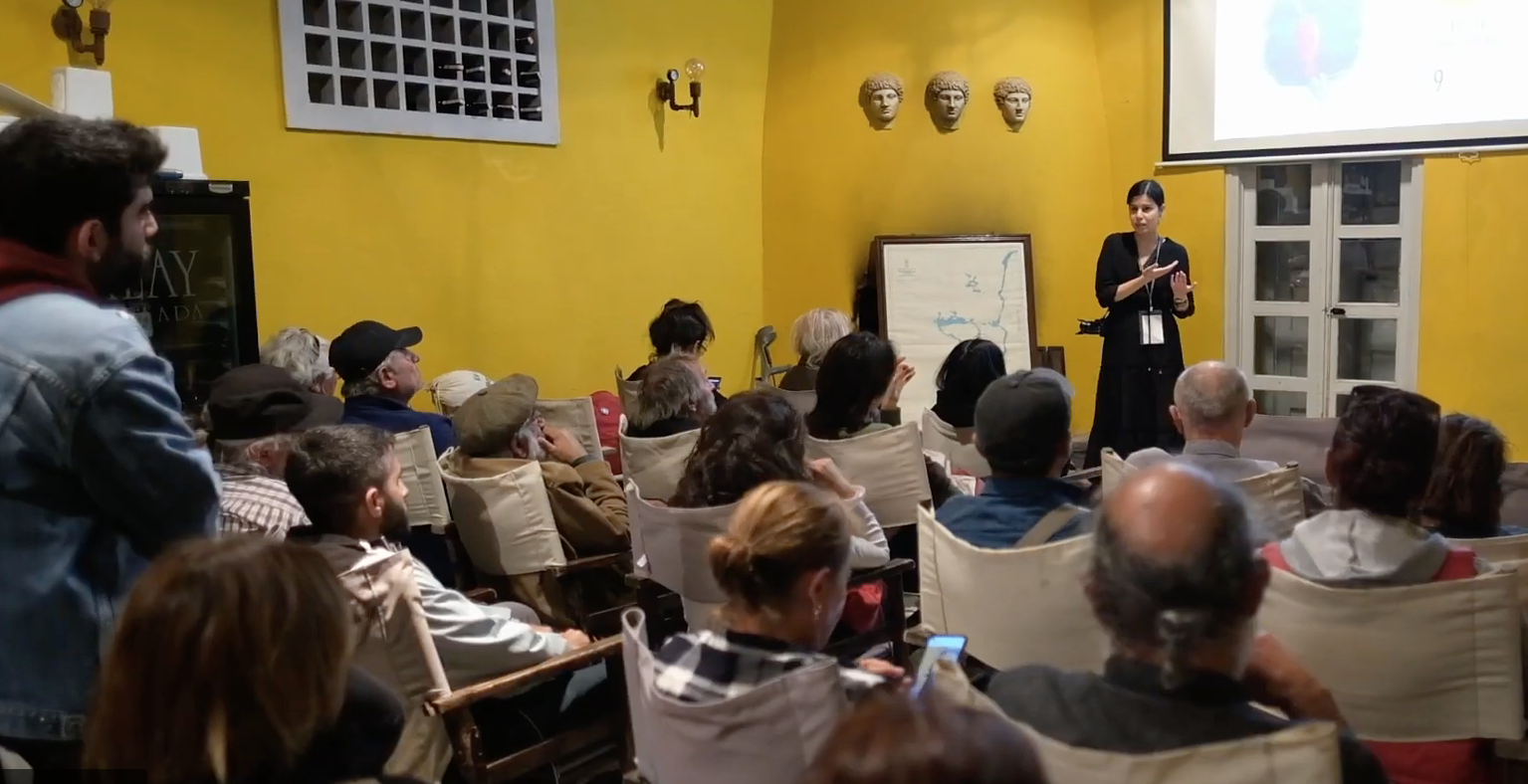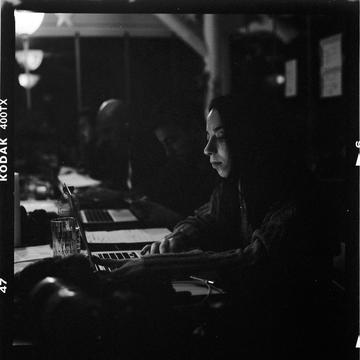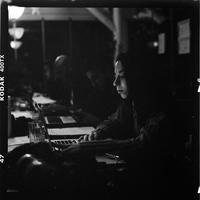
BIFED 2022, screenshot from a video by the festival organisers
Bozcaada has hosted an ecological documentary film festival for nine years now. A community-building cultural initiative that is of crucial importance in today's repressive climate in Turkey. We were there from 12 to 16 of October
In Turkish, “Bozcaada” means "uncultivable island". In Greek, this island is called Tenedos. Getting to Bozcaada is a small endeavour. We are a group of friends, Turkish and Italian, and on the way from Istanbul to Bozcaada we talk about the Aegean Sea. Some of us have never been there; someone has, but only along the coast in the mainland, without reaching the (few) Turkish islands that remained in the hands of the Kemalist Republic after the Treaty of Lausanne.
“Let's take a break in Susurluk”, suggests Begum; for those of us who are familiar with recent Turkish history, Susurluk inevitably recalls the well-known incident that revealed links between the mafia, the far right, and the Turkish state in the 1990s. However, today I discover that Susurluk is even more famous for its toasts; so, we stop at a tostcu, famous for its tomato sauce on warm bread.
Once arrived in Geykli, where we will take a short one-hour ferry ride to the island of Bozcaada, the sun is sweet: we take off our shoes and put our feet in the sand, next to a volleyball net left over from the summer.
On the boat, we are asked for our passport: the border police, in this bridge between Turkey and Europe, is carrying out what they call "operations for internal peace". We comment the episode with Asli and Annie, who - we will discover in the following days- are activists for workers' rights, in contexts where work meets environmental devastation. Shipyards and construction sites, intensive farming, mines. “The meeting between red and green strikes", Asli will define it while presenting one of the many documentaries screened at the BIFED ecological film festival. This meeting on the boat is a first taste of the spirit of the festival, now at its ninth edition : dozens of people come together on this small island, united by the commitment and interest in the environmental and social dynamics taking place in the world.
BIFED offers a unique opportunity to all of us: to be in a quiet place, take the time to share our story, and meet others. What lies in the interstices, in the breaks of BIFED, is of equal importance. The movies are screened in two exceptional venues: the people's house (halk eğitim), where the mayor of the island will close the festival with a speech of heartfelt gratitude; and salhane, overlooking the sea with an extraordinary view of the castle that stands on the island's port. Between screenings, full of new information, voices, and images from all over the world, you can stroll through Greek-flavoured downtown Bozcaada; you can sit down to drink a çay in the central square; you can eat meze while sipping raki in one of the many meyhane in the white and blue alleys. Above all, you can meet the other people who, like us, took different means of transportation to reach Bozcaada, intrigued by a "slow", "small", and "local" festival, as the BIFED motto states; or returning after the previous editions, proud to involve new people in this experience.
Climbing the narrow streets of the island, we meet up for breakfast in the garden of Ethem and Petra, the founders of the Festival. We are meeting again after months of study at Bilgi, the Istanbul university where we first met. And the conversation seems to pick up right where we left it, commenting on their movie, "4857", which the night before stimulated an intense debate about labour policies for shipbuilding industry labourers in Turkey. Deniz, the Turkish friend who accompanies us, worked in the Tuzla area as a clerk: “When we opened the windows of the offices for the summer heat, in the evening I used to rinse off the black dust from the construction site. I heard my employers haggle over the compensations to the families of victims of work-related fatalities, to avoid being legally charged".
We taste the olive oil from the field of Petra and Ethem, produced in the Geykli area, imagining future collaborations with associations in Italy.
"The importance of documentaries on social and environmental issues is not only related to raising awareness among those who watch them in the short-term, but also lies in the power of this medium to keep the memory of the struggles against the phenomena of environmental devastation alive", comments Suleyman, one of the volunteers who contribute to the organisation of the festival, while we chat in the garden of the BIFED press room and office. “Documentarists, together with journalists, are among the fundamental players in our struggles: in addition, there are the victims - for example, those who suffer firsthand the effects of working in contact with toxic substances, or those who live in areas at the heart of extractive exploitation and no longer have access to water; then there are the scientists who validate the harmful consequences of certain actions, and the lawyers who urge justice so that they don't go unpunished”, explains Annie.
It is a special experience to be walking through the streets of a small town and catch excerpts of conversations from the tables and benches of those discussing crucial issues, stimulated by what they have seen and heard over the course of a dense schedule . And all of this is even more valuable in view of the very harsh attempts to silence Turkish civil society.
It is impossible to leave the island without a veil of melancholy: after five days BIFED has created a community. We are not leaving as audience, but as friends and companions of an extraordinarily beautiful festival.
Galleria fotografica
The photos by Mattia de Virgiliis at the International Ecological Documentary Film Festival in Bozcaada




































 To Top
To Top